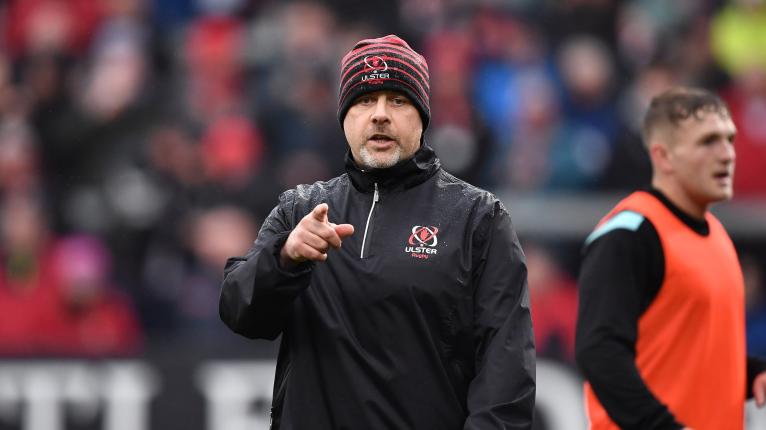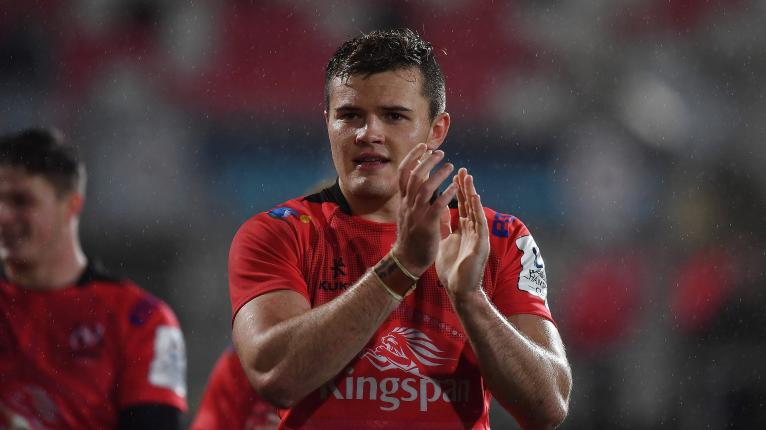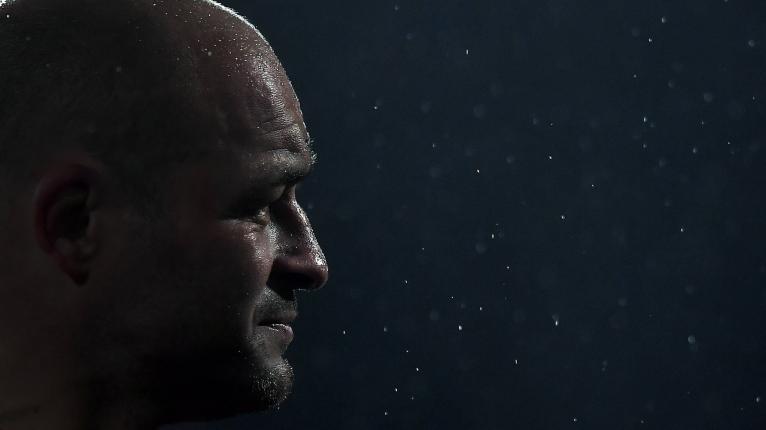Ulster are paying a heavy price at the turnstile for their nightmarish year off the pitch

Ravenhill wasn’t bursting at the seams when Ulster swooped for their latest Champions Cup win on Friday night. A little over 12,000 people paid in, a third of the 18,000-capacity ground left empty. So much for partisan war-cry of standing up en masse for their beloved Ulstermen.
You can be taken in by some excuses as to why supporters voted with their feet. The weather was bad. The match was taking place on a night busy with Belfast office Christmas parties.
Truth be told, though, the disappointing attendance was further evidence that Ulster are paying a heavy price for the brand-damaging, haphazard way they conducted business in early 2018. Players and coaches were sacked. The CEO repeatedly ran for cover without sufficiently fronting up. Terrible optics that left a legacy which is now hitting the club in the pocket.
Results-wise, there is little difference between how current boss Dan McFarland is faring compared to last winter under the ousted Les Kiss. McFarland has nine wins and a draw from 14 outings. Kiss had 10 wins and a draw from the same number of matches. All much of a muchness on the pitch then.
Off the pitch, however, it’s a different story. Turnstile evidence of a province disconnected from its paying public. Their first seven home games under Kiss in 2017/18 attracted 102,382 people. Their first seven at home under McFarland? Just 88,227 have turned up, 14,155 down.
Continue reading below…
It’s a costly 14 percent drop-off. With average ticket prices in Belfast around £29.50 (price range is £14 to £45), Ulster’s gate revenue has potentially collapsed by as much as £400,000. Enough of a wedge to fund the annual salary of two-and-a-half first-team players.
Excuses can be made why their cumulative PRO14 attendance is 8,474 below what it was at this stage of the season a year ago, a troubling 1,254 people less attending this October’s home derby with Connacht compared to the same fixture 12 months earlier.
However, something must be fundamentally wrong when gates for the European home matches against Leicester and Scarlets attracted 5,661 people less than last winter’s Champions Cup games versus Wasps and Harlequins. Similar standard UK opposition, but fewer people cheering them along.
What gives? It’s obvious their reputation remains dented by last spring’s various going-ons. They were sloppy in managing the damaging fall-out of the unprecedented Paddy Jackson/Stuart Olding court case.
Sloppy, too, in their coaching ticket reshuffle. Kiss was sacked without proper explanation when it happened. Jono Gibbes quit, claiming he wanted to go home to New Zealand only to caught negotiating a job he went on to take in France. Then McFarland was appointed but not cleanly appointed as he initially was only being released by Scotland for the start of 2019 before compromise was reached.

All the while, CEO Shane Logan, who ambitiously stated at the start of his reign in 2010 that his plan was to make Ulster the world’s leading rugby club, failed to illustrate strong leadership to dilute the crisis. The administrator eventually fell on his sword at the end of a season where Irish legend Brian O’Driscoll trenchantly described them as a ‘basket-case’ province.
Not that it has all been doom and gloom for a business that became the most talked about in Ireland for all the wrong reasons in early 2018.
McFarland’s fresh approach ensured terrible inter-pro defeats to Munster and Connacht didn’t have a lingering on-field hangover. Meanwhile, long-serving sponsor Kingspan remained onside, the building products manufacturer extending through to 2023 as the club’s principle sponsor.
But there continues to be a troubling state of flux regarding what Ulster aspire to be. They want to showcase the best local rugby talent, yet local identity continues to decline.
When they last lifted a trophy, beating Ospreys in Swansea to clinch Celtic League honours in May 2006, 12 of their starting 15 had taken up the game locally, 18 from 22 when you added in the bench selection.
Come the 2012 European Cup final, local input had reduced to eight of the starting line-up at Twickenham against Leinster. The half-dozen more locals on the bench made it a 14 from 23 figure.

Six-and-a-half years later, though, Ulster’s increasing inability to foster their own was illustrated by the origin of the personnel that brushed aside Scarlets in European round four. Just eight of the 23 – a mere four of the starting 15 – were locals. Contrast that to high-flying Leinster, who gave Bath a trouncing with 20 of their 23 growing up in their province.
The lack of identity grates. Former coach Brian McLaughlin, unceremoniously dumped as team boss following the 2012 European final, cites failings at grassroots level for the shortfall. He believes the funding of more Ulster-employed coaches and development officers is needed to combat constraints on teachers in the schools rugby system and the growth in popularity of the Northern Ireland soccer side.
This battle for hearts and minds shouldn’t be so difficult. In Rory Best, Ulster have the current Ireland skipper on their books. In Jacob Stockdale, they possess one of the most exciting talents to emerge anywhere in the world in recent years. His Friday night finish against Scarlets was sublime, enabling Ulster retake a lead they never lost.
What the club badly needs is a period of stability. One CEO, two directors of rugby, four head coaches and multiple assistants have moved on since that cup final appearance in London 79 months ago. That’s quite an upheaval, a merry-go-round that will have McFarland fearing he will become another casualty unless he is given the right level of support to evolve his fledgling reign.
Putting the Ulster back into Ulster and winning back the approval of stay-away fans is an immense challenge in a climate where they are dismissively described as Leinster Lite, a squad with a growing chunk of players who learned their trade in Dublin, not in or around the Belfast area.

Iain Henderson admitted a year ago they were trying to take remedial steps, a culture committee being formed to enhance the local knowledge of Ulster’s imports.
‘Once or twice a month we get past players coming in for a chat, so the lads get a feel for what it means for local players and what it meant for them to play for Ulster and how proud they were wearing a white jersey, building all that around our club ethos, trying to work hard for each other and being more of a team rather than being a collection of players,’ he explained.
‘We’re quite proud of our values and what we have got in terms of our fanbase, the facilities we have got, but also the history behind the club.’
That history became tainted by the stressful months which followed, but three wins from four has given them a chance of European progress for the first time since 2014. Qualification would surely help win back some lost support, but it’s easier said than done. Kiss went into Christmas last year with three wins from four, but failed to get Ulster into the last eight.
The pressure will be on rookie boss McFarland to ensure his similarly good approach work doesn’t go to waste in January.


























































